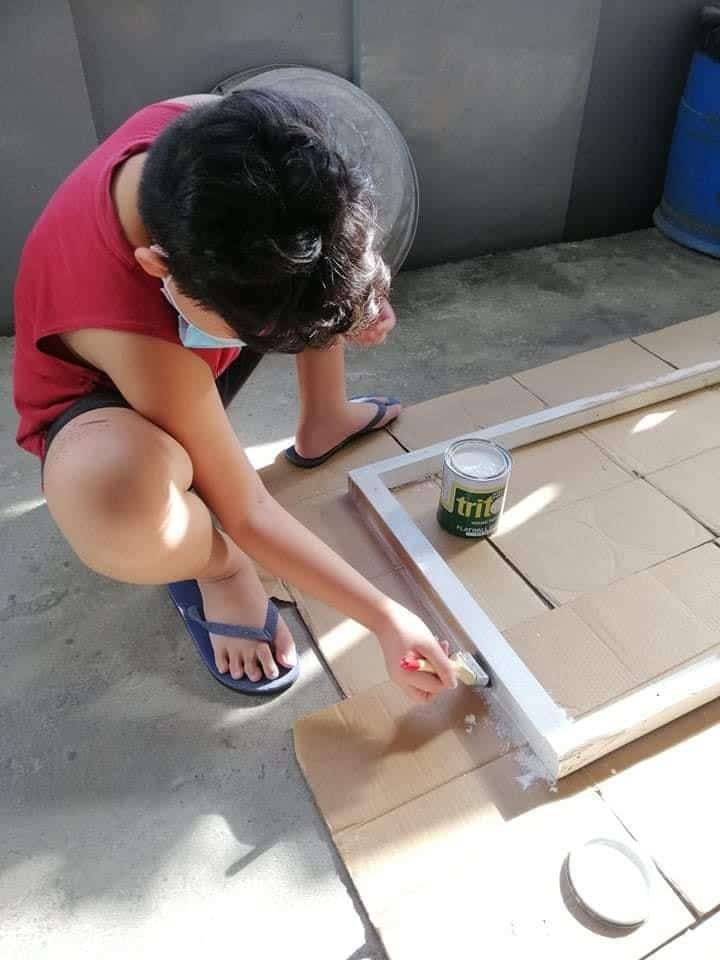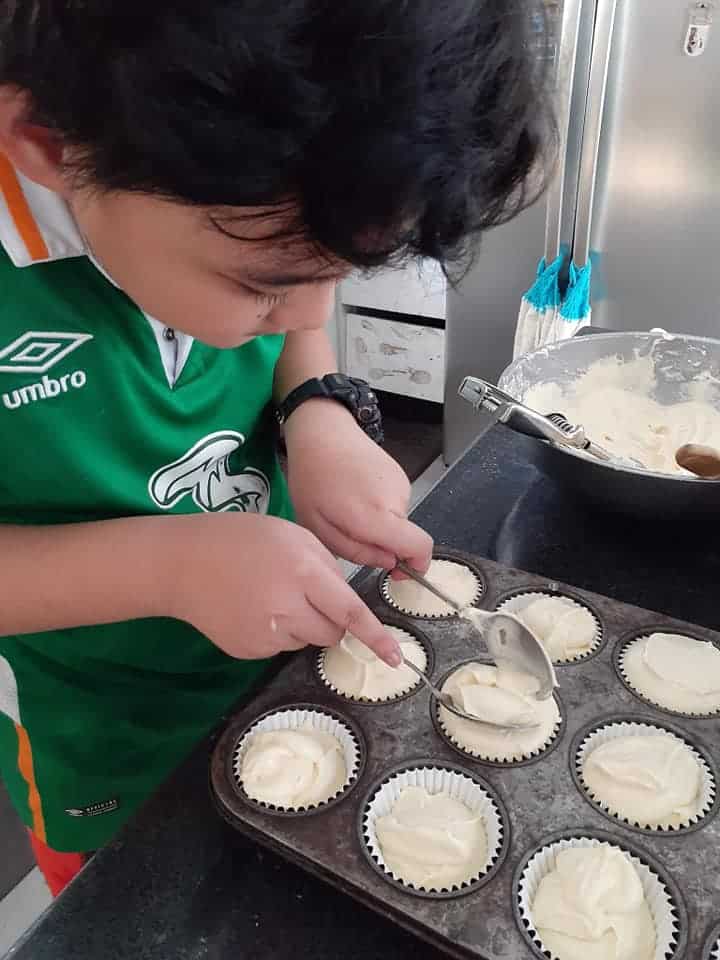More and more Ilonggo parents choose homeschooling than enrolling their kids in formal academic institutions. The parents take the teacher’s role in their children’s education and provide a more hands-on approach to learning. From baking and entrepreneurship to gardening and Mathematics, parents spend more time with their children providing quality tutelage.
For mommies and daddies looking at homeschooling their child, there are raging questions that come into mind before plunging in. What’s the process of homeschooling like? Does a regular school or DepEd itself support the child in transitioning from homeschool to school?
Not to mention, families are opting to leave private schools and enroll their children in homeschool providers due to the pandemic. Trust us, long before COVID-19 came, there’s already a thriving community for homeschool in the Philippines. But how does a parent prepare their children for homeschooling?
Sharlyn Joy “Shey” Velasquez of Brand Hive Digital Agency tells us what it’s like to homeschool her children.
“We started homeschooling in Davao City in 2016,” she said. “There was a growing and thriving homeschooling community. Coincidentally, a friend who was also homeschooling moved to Davao around that time. It gave us confidence that if we embark on this journey we will have a community that will provide us support. We started with a provider that was based in Manila.”
Shey’s friend, Grace Gaston-Dousel of Arrows & Quivers, serves as her advisor/mentor. Arrows & Quivers is a Dep-Ed accredited provider that also provides support to Independent Homeschoolers and families with other homeschool arrangements based in Davao City.
“Early adopters of homeschooling in VisMin.”
Contrary to popular belief, homeschooling doesn’t only take place in a home! Learning and educational instructions let the kids integrate into communities, and varied environments such as local museums, studios, or libraries.
“I believe in the unique traits and talents of children and found traditional schools limiting,” Shey said. “My husband and I toyed with the idea of homeschooling our eldest son back in 2006. However, it wasn’t really a popular concept then and there was no homeschooling community,” she continued.
In 2016, the opportunity came around for the family when they realized that their youngest son, Rapha, was not cut for mainstream or a traditional school. He was a budding artist and schools were more geared towards heavy academic work.
“We have observed that going to school was causing our son so much anxiety and stress. He was also getting sick a lot and was always absent,” she perceived.
Shey and her family would consider themselves among the early adopters of homeschooling in VisMin. “Four years ago, it was still each family on their own,” she said.
It took a lot of courage and a lot of trial and error. Now, it is way easier to homeschool. There are more providers and support systems available for families nationwide.
“I am currently a learning coach for Arrows & Quivers Homeschool and we have been conducting Targeted Homeschool Series and webinars to equip parents to homeschool their children,” Shey said.

“You don’t take the school home.”
Not to say homeschooling is heckuva easy. Homeschooling can be challenging and should not be taken lightly because it’s *ahem* home-schooling.
Families make serious and strategic decisions whether it’s the best thing for their children. You have to remember to take into account your child’s mental and emotional aspects as well.
“Homeschooling is not for everyone,” Shey pointed. “There are children who thrive in mainstream school and there are those who thrive in a one-on-one learning setting. It also depends on the set up at home. For working parents, homeschooling is more challenging.”
For Shey and her family, her first year entailed a lot of unlearning and she, as a parent-teacher, had to go through a paradigm shift.
“I was a university instructor and was used to classroom-based learning,” alluding to her years as an Advertising instructor at Central Philippine University. Their first few weeks were a struggle as she tried to simulate a classroom-like environment.
“I learned that we don’t take the school home,” Shey firmly said. “I had to juggle housework and teaching at the same time. Eventually, with the guidance of our learning coach, we relaxed our schedule a little bit and adjusted our homeschooling to our family routine.”
She mentioned that her son also had difficulty seeing her as a teacher because, for him, she was always “mommy.” It was only made easier because they had a community that provided support, organized coop classes, and field trips for children.
Shey Velasquez. Shey by Design
“There are more providers and support systems available.”
“Resources were not a problem,” Shey said. “My experience as a teacher helped me in putting together lesson plans and activities for my son. In our first year we bought DepEd K-12 books and selected them from a booklist from our provider. The rest of the material depended on the lessons I have prepared for him,” she explained.
For parents, there are two homeschooling support systems to follow: independent homeschooling or with a homeschool provider. The former doesn’t follow or aren’t connected to any DepEd accredited providers.
Shey’s youngest son, Rapha, is an independent homeschooler.
Homeschool providers partner with DepEd accredited schools. They give you a set of curricula such as materials, textbooks, manuals, grading guidelines, lesson plans, worksheets, and more.
Shey’s family is an independent homeschooling family who decided to avail of the support system of Arrows & Quivers Homeschool specifically designed for independent homeschoolers.
But, does a regular school or DepEd itself support the child in transitioning from homeschool to school?
“Because Rapha is an independent homeschooler, he doesn’t need to take a standardized test – only if he is to go back to mainstream school,” Shey explained. “That’s when he needs to take the PEPT or Philippine Educational Placement Test. We’ll know how it is to transition from homeschool to regular school when Rapha decides to go back to mainstream.”
Once the child is able to take the PEPT test and passes the desired grade level, DepEd School will acknowledge the certificate as a valid proof of admission.
“With Arrows & Quivers Homeschool we have our Quarterly Assessment where Learning Coaches evaluate the child’s progress through a learning outputs presentation,” she began. “Both DepEd Accredited Program Enrollees and Independent Homeschoolers go through the Quarterly Assessment. This is one-way parents are held accountable for the progress of their children” she continued.
“Give time to adjust to your new set up.”
As Shey pointed out earlier, homeschooling is not for everyone. Parents need the commitment to see to their child’s education.
“For those with preschool children it is easier to start homeschooling,” she said. “It only becomes a bit challenging when the child has already been enrolled in the mainstream or traditional school where he/she has developed friendships with classmates and adjusted to the school routine.”
She shared that when transitioning a child from mainstream school to homeschooling, it helps to talk with them the advantages of being homeschooled.
“Ask the child what he doesn’t like about homeschooling and address his fears,” she reminded. “Don’t jump into academics right away. Give time to adjust to your new set up and get to know each other.”
When children are old enough, parents can involve their decisions when it comes to homeschooling. Children, when given a voice and are heard, reduces the conflict between parent and child during the learning sessions.
“When we do our annual goal setting for our homeschool we sit down with our son, Rapha, and ask him what his personal goals are for the year.”
With that being said, should parents establish daily schedules? Or, will a homeschool provider do it?
“Each homeschool is unique,” Shey pointed out. “So, the schedule will really depend on the family.”
A provider with a boxed curriculum may suggest a schedule. However, for Shey and her family, they have an open curriculum.
“Since our homeschool is integrated into our routine, we follow our family schedule,” she explained. “Lessons are scheduled at the time of the day where the reception of learning optimum. If the child is more alert in the morning, we can have our homeschooling then. If the parents have day jobs, they can have their homeschooling at night.”

“Build intentional relationship.”
Homeschooling provides the parents with an opportunity to build an intentional relationship with the child. Bible and character lessons are integrated into all of her family’s subjects.
“We make sure he is heard when he has something to say. We put character first over academics,” Shey said.
Of course, tension and conflicts cannot be avoided, Shey relayed that one. Dialogues and open communication in the family are encouraged.
“The homeschool approach that we apply entails us to devote our mornings to learning,” she said. “We start with Rapha doing his daily routine which is to fix his bed, have his personal Bible time and devotional, make breakfast (he does this on his own most of the time), attend to our personal needs, and prepare for homeschooling.”
What’s better to see is that their son is involved in making our schedule. It is very much structured and he prefers to have difficult subjects first.
“The easier subjects, which are usually in his field of interest like the arts, history, and storytelling, are taken up in the latter part of the morning. In the afternoon, he has his free time either playing with an online game or does some home projects,” she shared.

Benefits and drawbacks of homeschooling with the public
Children who are homeschooled have the advantage of a one-on-one learning session. They would likely explore more outside the classroom and learn more at their own pace. And, that’s what Shey believed in.
“We are able to design our homeschool according to our family routine. Rapha is able to learn at his own pace. He is able to have time to develop his interests and nurture his inner genius,” she said. “When we need to do domestic travel we can take him with us. We can expand our classroom beyond the four walls of our home. He is able to meet different types of people that improve his socialization and relational skills.”
That doesn’t mean to say they didn’t face any objection in the community.
“We already wanted to homeschool our eldest son, Matt, way back 2006 and we were met with objections by family and the community. There’s the misconception that children will not have any socialization,” she shared. “There was no active homeschooling community then, [so] we chickened out,” she said.
As Shey looks back, she should’ve gone ahead and homeschooled her kids. Contrary to public perception, homeschooled kids socialize a lot. They have the opportunity to meet people from different walks of life and interact confidently with kids their age as well as with adults and those younger than they.
“We have field trips/lakbay aral in our support system and homeschool community. We have coop classes for academic subjects and apprenticeship programs,” she said.

Tips for parents starting on homechooling
What advice do you have for parents who now find themselves wanting to homeschool their children?
- Pray about it. Discuss with your spouse and your children.
- Identify your family’s purpose and philosophy on education.
- Prepare by researching. Find out what homeschooling is. What are the different types of approaches? How do other families do it?
- Do some pencil-pushing. Decide on your budget.
- Develop a mindset that your goal in homeschooling is not perfection but progress
- Join a community. Homeschooling is not popular in VisMin as it is in Manila. It probably just picked up now because of the pandemic. To give the Visayas and Mindanao based families a community where they can find other Hiligaynon, Cebuano, Bisaya, Waray speaking families, we have a Facebook group Homeschoolers in VisMin https://www.facebook.com/groups/566332580931090/
How can our readers reach out to you in case they want to know more about homeschooling?
I have a Facebook Page: https://www.facebook.com/SheyByDesign where I post our homeschooling journey. They can also join Homeschoolers in VisMin FB Group https://www.facebook.com/groups/566332580931090 / or like Arrows & Quivers Homeschool FB Page to enroll in our Homeschool Programs https://www.facebook.com/arrowsandquivers/.
Arrows & Quivers is a K-12 DepEd Accredited Homeschool Provider based in Davao City but is currently intentionally serving Visayan families. I am the Learning Coach assigned to assist families in the Visayan regions.



